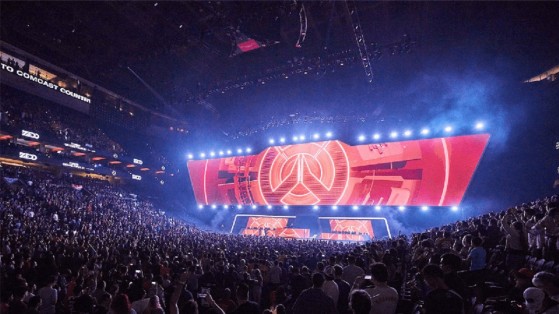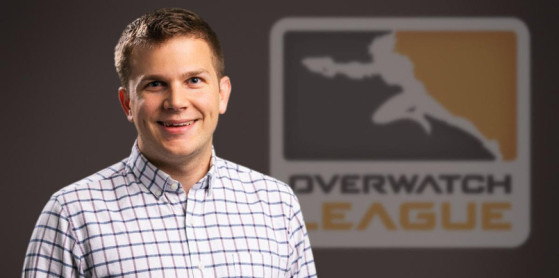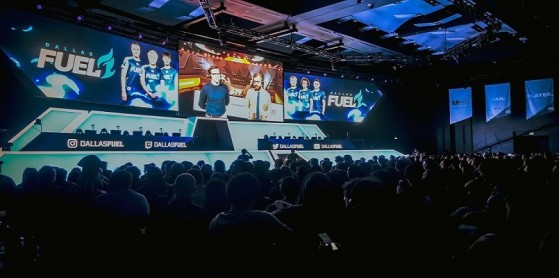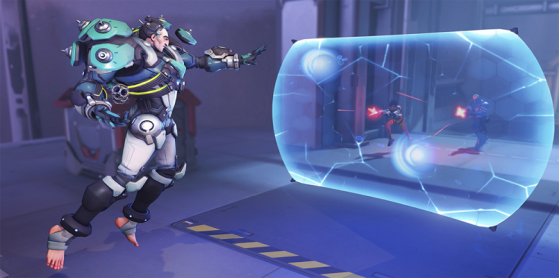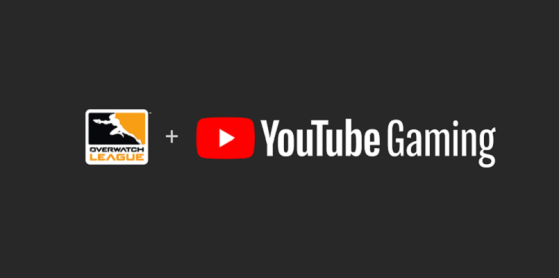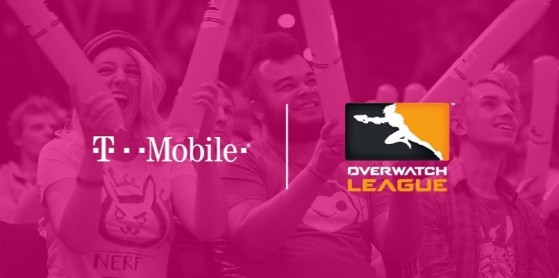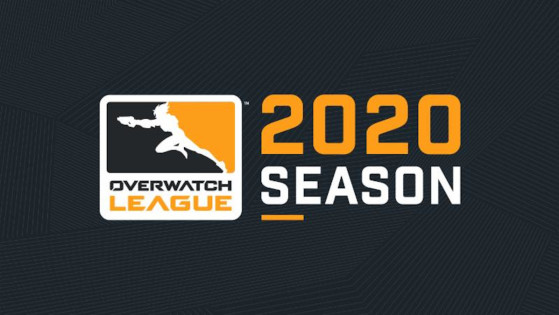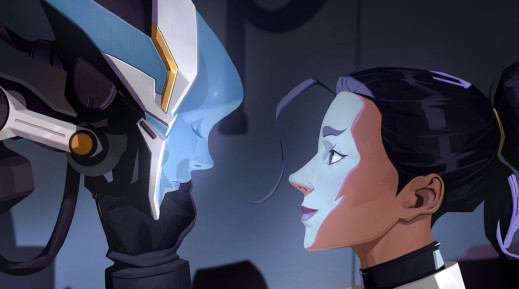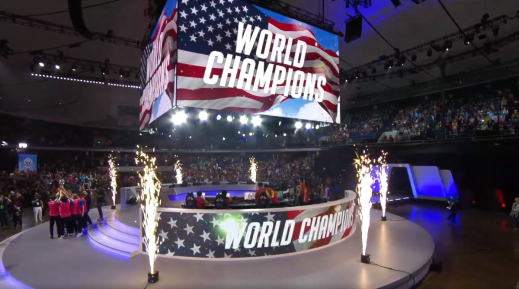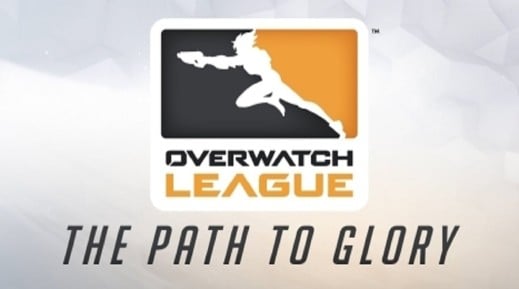Even before it began, the third season of the Overwatch League had some difficulties to overcome. Several crucial changes within the League have made the launch of this season a pivotal moment for Overwatch esports. Daring and risk-taking could well be the hallmarks of the 2020 season.
Without even mentioning the numerous departures of staff and players that had taken place a few weeks before the competition resumed — something which may have impacted ticket sales — its the new format that will certainly affect it the most.
The new homestand system is a rather daring gamble for Blizzard. To have the League's twenty teams travel to the four corners of the globe to raise the League's profile is an idea that seems crazy at first.
However, it's a scheme that can already be found in more traditional sports, in particular the NBA. The real advantage is the involvement of fans from all over the world through attendance. This converts them from simple spectators to active participants in the League, by allowing them to support their favorite team in person.
For Jon Spector, Vice President of Overwatch Esports and formerly with the NBA, the idea is to expand the League on a global scale to make it accessible to as many people as possible.
"Overwatch is popular, played by millions of people all over the world, and we felt like that might give us this really cool opportunity to launch a league where teams and players come from all over. We have players in OWL from 20 or more countries.
Having city-based teams creates an accessibility for the League that you don’t see in a lot of other esports."
The cause is certainly a noble one, but seems difficult to achieve without proper compensation. Moving from a centralized competition based in the U.S. to a global league logically involves new logistical challenges.
The means granted to the Overwatch League aren't the same as for the world's premier basketball competition, and not knowing the travel conditions of the OWL players, there is the question of journey times.
We know that over the course of the whole season, the distances traveled by teams may be as much as 123,795 km for London Spitfire, compared to just 34,324 km for Washington Justice — with the teams in the South Atlantic Conference being the most well off when it comes to least distance covered.
By comparison, the NBA's Utah Jazz will travel the most during the course of the regular season, with approximately 90,000 km in the bank upon its conclusion.
It should be noted that NBA teams only travel within U.S. territory, play four times as many matches as teams in the Overwatch League, and could be required to fly several times a week depending on the schedule. Spector is aware of the issues that such a format imposes, and offers teams reassurance.
"We know we’re asking our players to travel a lot in order to make a global league work, and to have those teams around the world to compete each other.
We’re sequencing the events so that the events in Asia, for instance, are occurring back-to-back-to-back, and teams from Europe or NA that need to compete in Asia are typically taking one longer trip there, instead of needing to get on an airplane and fly back and forth on those very long trips."
The idea of bringing several teams together in the same city for a weekend isn't new. In Overwatch League Season 2, Homestand Weekends were organized in three of the cities represented by Overwatch League teams — Dallas Fuel, Los Angeles Valiant, and Atlanta Reign.
These fan events were a huge success — all 4,500 tickets for the first Homestand, at the Allen Event Center in Dallas, were sold out in a matter of days. This set a new record for the League, for the largest gathering of people attending a single game in regular competition.
The organization of such weekends, with new financial and human resources, wasn't only done to please fans, but was the fruit of much deeper reflection. These 'test matches' — if we can call them that — were designed to experiment with a new format, with a view to a possible implementation the following season.
"We’ve been working on the 2020 format for a really long time actually, before the season started. Even when I first joined in 2017 we were talking about how this would work, and what it would take from a format and a competition perspective to run a global league where you have teams based in Paris and London, but also New York, San Francisco, Shanghai, and Seoul.
Pretty quickly — actually after that Dallas event — we felt really confident that we’d landed on a format that worked really well, and that would be exciting and fun for fans and players to participate in and come to."
Nevertheless, this doesn't solve the League's problems. Blizzard has always had trouble balancing its game and implementing rotations in compositions. Dissolving the GOAT meta by introducing the Role Lock is something that will only slightly delay a new meta dominating the game.
Speaking of meta, which will prove to be the chosen one? The Double Shield composition — combining Orisa with Sigma — dominated towards the end of Season 2. Strategies quickly became redundant, with professional and casual players alike quick to make their dissatisfaction known.
This is how the Hero Pool was created. Gamers of all backgrounds are familiar with this concept, as it has long been available in the likes of League of Legends and Paladins to name a few.
As far as Overwatch is concerned, this system makes it possible to ban four heroes (two DPS, one Tank and one Healer) for a full week of competition. They will be randomly selected from a list of heroes with a pick rate of at least 10% over the previous two weeks.
One thing to note is that a hero cannot be banned twice in a row. The goal here is simple: to diversify the picks, and offer a much more interesting gaming experience — something we confirmed with Spector.
"It’s going to be a really positive addition for our competition. When you look back over the last couple of seasons, and the start of this one, one of the things we know our fans enjoy the most in terms of the viewing experience — but also that our players enjoy the most from a competition perspective — is feeling like there’s a lot of strategic depth to what they’re doing.
They’re all sort of experimenting and trying to figure out what the best composition is."
According to Spector, this Hero Pool system is an 'experiment,' and if there is a need to make adjustments, they will be made during the season.
Speaking of adjustments, there are those which fans expect. The sudden switch from Twitch to YouTube Gaming has raised many questions, in particular about the rewards that viewers could unlock when watching the competition live.
This system made it easy for die-hard fans to win tokens that could be exchanged for specific Overwatch League skins — the latest being the Brigitte GOAT skin.
Despite repeated claims by Blizzard, nothing has been done about the matter yet. According to Spector, that request has been taken into account but that allowing fans to watch quality games at the beginning of the season was the top priority for the developer.
However, fans shouldn't worry — he also adds that talks with YouTube are ongoing to see whether a similar system could be implemented on their new streaming platform.
All in all, Spector is delighted with the potential of the Blizzard-YouTube partnership and what it could bring to the League in the long term.
"I became incredibly excited about building a long-term partnership with them, knowing what they can do to help us grow the game. That gives us an opportunity, with matches played all over the world in every different time zone, to create a higlight-and-VOD product to catch up on your favorite team, and see what you’ve missed."
We can easily assume that such a deal wasn't made without careful consideration of its impact over the next few years.
According to anonymous sources, figures point to an investment of nearly $160 million, or about $50 million per season, for YouTube to acquire the broadcast rights to all Activision Blizzard's major esports competitions: the Overwatch League, Call of Duty League, Hearthstone Grandmasters and Masters Tour, and the World of Warcraft MDI and World Arena Championships.
Two years ago, Twitch paid $90 million, or $45 million per season, to broadcast the Overwatch League alone. YouTube appear to be investing a little less (per year), but has committed to two franchised leagues. This could be seen as a masterstroke if they both meet with the success that Blizzard hopes for.
On top of that, several dedicated esports complexes are being built by the leagues' franchising, allowing teams to host their homestands at venues such as the Fusion Arena, following the model of what is done in traditional sports.
In other words, investing so much money necessarily involves a strategic plan that extends over several years. While the success of the Overwatch League hasn't yet reached its zenith, it's quite possible that the 2020 season still holds many surprises. Proving that founding esports' first franchised league was a daring, yet successful, gamble would be a great victory for Activision Blizzard.
Having brought in world-renowned brands such as T-Mobile, Coca-Cola, Toyota, and Hewlett Packard as sponsors shows that this project is on the right track despite the criticisms levelled at it.
"We have an incredible lineup of partners who are all really committed to helping us grow OWL around the world. When you bring in global brands like a Coca-Cola or a T-Mobile, those can be really helpful as you grow the game."
One of those aforementioned criticisms has been about the teams' apparent inability to attract their own sponsors in similar fields to the main League partners — something Spector is quick to dispel.
"For many of the deals the League does — T-Mobile is a good example — while we’ve structured a League-level relationship with them and the teams benefit from that, we haven’t told the teams they can’t go do a deal with a competitor in the wireless space.
To give a specific example there, in Toronto one of their biggest partners is Bell, one of the largest wireless providers in Canada, and Toronto Defiant are working closely with them."
Overall, Spector is enthusiastic about the partners the League has brought on board and their impact on teams involved, stating that there is scope for brand activations with the teams directly as well as the League as a whole.
"I’ve also been really excited to see the League partners go above and beyond and work directly with the teams, in some of the markets that are priorities for them, or where the teams have done a great job of creating additional value for League sponsors.
Even just this season, if you went to the NYXL event to launch the season, one of the first things you’d have seen as you walking into the venue was some Coke brand ambassadors handing out free samples of their energy drink product. Coke worked directly with NYXL to support that, to activate with them specifically, and to drive revenue for the team. That’s a team relationship, not through the League deal."
On the whole, Spector is reassuring about the future of the League. Even if certain things still need to be clarified, Blizzard seems willing to put processes in place to ensure the smooth running of its League.
However, is this realization coming too late? It's something that is hard to say, given Season 3 is only in its fifth week of competition.
The long-term fate of the Overwatch League could well be decided in the coming months. Only time will tell whether it will finally manage to achieve its goals, and be seen to have had positive impact on esports as a whole.
